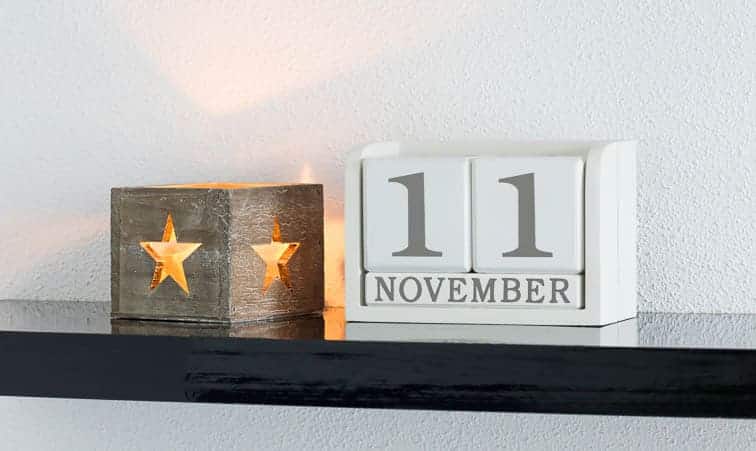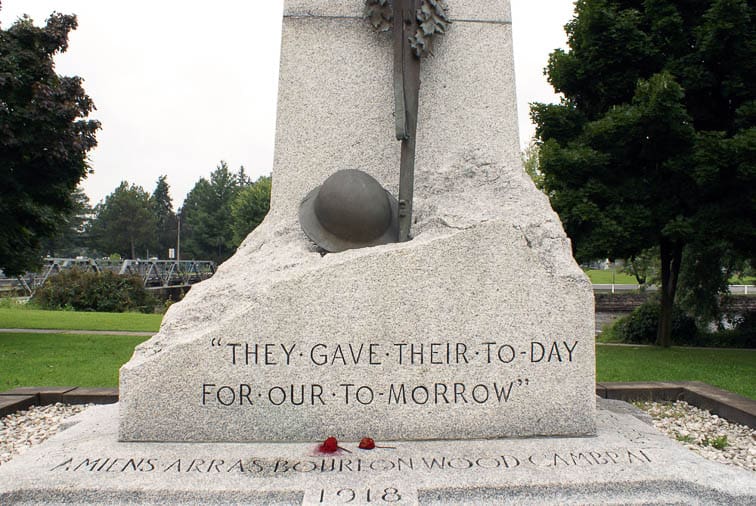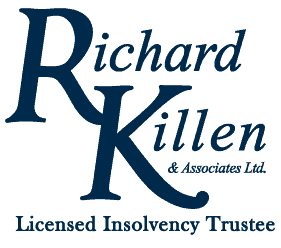How to Qualify for Installment Loans with Bad Credit in Canada
Qualifying for installment loans with bad credit in Canada can be very challenging, particularly after a bankruptcy or consumer proposal. This is because your credit score plays a role in the rate you qualify for. Financial lenders have to consider your relative risk as a borrower to pay back a large amount of money. With good credit, you could be offered a lower interest rate. If you have a bad credit history, you could still be eligible for financing, but it may come with a higher interest rate.
What is a credit score?
Your credit score represents your propensity for paying back what you borrow. Lenders use it to see how you’ve previously borrowed money and your reliability in paying it back to consider how suitable you are to receive financial credit. So it would be, when you take out a loan, every time you make an on-time scheduled payment, your credit score improves. In contrast, any time you miss a scheduled payment on the loan, your credit score worsens.

What is considered “bad credit” in Canada?
Generally, credit scores above 700 are considered good. Most lenders will see you as a low-risk borrower, making you more likely to get approved for a loan with a lower interest rate. On the other hand, credit scores that fall below 560 are generally considered as “bad credit” in Canada which makes it harder to get approved for a loan and could result in having to pay a higher interest rate.
How a consumer proposal and bankruptcy affects your credit score
When a licensed insolvency trustee helps you file a consumer proposal or bankruptcy with your creditors, a note is placed on your credit report, and you’ll receive an R7 credit rating for a consumer proposal or an R9 rating which means you have declared bankruptcy. To put that in context, R1 is the best credit rating possible, an R7 status, is the third lowest rating, while R9 (bankruptcy ) is the worst score.
The good thing is that bad credit or an R7 or R9 credit rating doesn’t stay on your history permanently. It sits on your credit report for 3 to 6 years. There are steps you can take to rebuild your credit faster and show creditors you’re taking steps to responsibly repay your debts.
One of the benefits of Installment loans for bad credit is that they give you a chance to build a good credit score. It is one of the safest ways to rebuild your credit, providing you keep up with your repayments. When you pay off an installment loan on time, this contributes to your credit score, and a long track record of on-time payments will slowly build up a good credit rating. With regular on-time payments, your payment history will soon show that you can pay back borrowed money consistently over time. A better credit score will make it easier to apply for loans and credit cards in the future, and you’ll also be eligible for better rates.
Can I get installment loans while in a consumer proposal or with a bad credit score?
Having a bad credit score isn’t the end of the world. In fact, bad credit is not uncommon in Canada. A recent StatCan study showed that over 17% of Canadians have a credit score below 560, which makes nearly 1 in 5 Canadians looking for bad credit loans at some point in their life.
While obtaining a loan can be extra challenging for those with poor credit or those in a consumer proposal, it’s not at all impossible.
The fact is there are going to be some lenders that won’t provide installment loans to those with poor credit, not to mention the increased risk associated with a consumer proposal. Frankly, you will have an easier time getting approval if you wait until your proposal is finished. However, you can still obtain a loan during your payment schedule. Approval will be much more difficult, but you will find many private lenders that specialize in providing loans to people with bad credit scores. Keep in mind, however, that they will typically charge a higher interest rate since you will be considered a higher-risk borrower.
The key to getting bad credit installment loans in Canada is to be able to show that you will not have difficulties repaying the loan or risk defaulting.
Here’s what to expect when you apply for a bad credit loan during your consumer proposal:
- Lenders will look closely at your credit history and finances to determine your creditworthiness.
- You’ll need to provide proof of steady employment and income.
- Expect lenders to contact your consumer proposal administrator or Insolvency Trustee to discuss your financial situation and your commitment to your proposal terms.
- You can expect your trustee to provide guidance and advice on loan terms and interest rates and also recommendations on lenders to make sure you’re taking on a loan that you can afford.
- You will need to prove to your Licensed Insolvency Trustee and lender that you will be able to manage making both consumer proposal payments and potential loan payments.

What are my options for getting a loan with bad credit or while in a consumer proposal?
“How to get an installment loan with bad credit?”, many of you may be thinking and bad credit loans are designed to help Individuals with limited borrowing options to access funding when other options aren’t available. However, some products can be costly and predatory. If you’re facing a financial emergency or unexpected expense, there are some types of installment loans for bad credit in Canada that may be low-risk alternatives.
Secured loans
Secured installment loans require you to provide a personal asset as collateral, such as a car or house, to protect the lender in case you default on payments. Because there is security for repayment of the loan, lenders are generally more willing to approve borrowers with bad credit and offer low interest rates.
Unsecured installment loans for bad credit
Unsecured loans do not require the borrower to put up any collateral. A major disadvantage is that they may have higher interest rates and stricter approval requirements, especially for applicants with bad credit.
Guarantor loans
Guarantor loans require a cosigner with good credit who will be responsible for paying back the entire loan if the borrower can’t. This can make it easier to get approved for a loan if you have bad credit, but make sure you can keep up with the payments to avoid any risk to your guarantor who will be responsible for the loan if you default.
Installment loans for bad credit offer flexibility, you can choose the loan amount, repayment period, and payment frequency that work best for you. With predictable payments, you’ll know exactly how much you’ll need to pay each month, making it easier to budget and manage your finances.
It’s also best to keep in mind that you may be more likely to be approved for a secured loan than an unsecured one when getting a loan with bad credit.
Find installment loans for bad credit in Canada with our insolvency trustees
When you apply for installment loans for bad credit in Canada, it’s crucial to prepare thoroughly before submitting your loan application. It may be difficult to obtain loan approval, but it is possible if you can prove your creditworthiness.
Do a lot of research before applying to compare lenders and explore your options to find alternative, private, or bad credit lending sources that are legitimate lenders. Watch out for predatory lenders that charge unreasonably high interest rates than are legally permitted for installment loans in Ontario. Be careful of fake lending sources that may steal your financial information.
A licensed insolvency trustee can review your situation and speak to you about solutions that may be much less expensive and work closely with you to make sure you’re getting the right loan for your financial situation.
Why Do We Celebrate Remembrance Day?

We celebrate Remembrance Day in Toronto to remember and pay respect to our heroes who have lost their lives in service to our country since World War I. In giving their lives to serve the country they made the ultimate sacrifice for the freedoms and rights that we enjoy today. These heroes have served, and some of them continue to serve our country in the Canadian Armed Forces, in the First World War, the Second World War, the Korean War, Peacekeeping and Afghanistan.
I don’t really have a personal connection to wars or veterans or even soldiers in the present day. But I know the history. I’ve come across powerful true stories of Canadian veterans and soldiers who have served and have been killed since then in the wars and in peacekeeping missions that go on to this day.
And although I don’t always get to join the large crowds that gather around cenotaphs across the country every Nov. 11, I still care to remember those who have made the sacrifice for Canada.
It’s important that we remember, “lest we forget” and thus make the same mistakes again.
How Do We Remember Nov 11

Remembrance Day marks the day World War One ended. At 11am on the 11th day of the 11th month in the year 1918, World War I officially ended. The Armistice was signed at 5am on November 11, 1918. Six hours later, at 11am, the long years of bitter fighting came to an end. The guns fell silent, the end of hostilities, and The Great War was finally over.
Every year on 11 November many programs and ceremonies are held all across Canada to celebrate this day. However, the official national ceremonies are held at the National War Memorial in Ottawa, following a strict protocol. Every part of the program pays tribute to the courage and sacrifice of our beloved heroes. These often include:
- The playing of “The Last Post”
Traditionally played by a bugler, the mournful hymn symbolizes the end of the soldiers’ earthly life and that they have gone to their final rest. - A reading of the fourth verse of the ‘Ode of Remembrance’
Taken from the Laurence Binyon poem ‘For The Fallen,’ the four most famous lines of the poem are read as a tribute to all casualties of war regardless of state or country. - Two minutes of silence
At 11 a.m., a two-minute silence, the most central part of Remembrance Day ceremonies, is held to remember and honour the men and women who have fought for the country in wartime. It is a respectful silence, first declared on 7 November 1919 by King George V, wherein those few minutes of perfect stillness we are requested to turn our thoughts to remember those who gave their lives in wars and other conflicts in defence of peace and freedom in our country.

Many people also choose to wear artificial poppies on their clothes in the weeks before Remembrance Day as a way to remember those who have given their lives in battle. Red poppies are the flowers that grew on the battlefields after World War One ended, and this is why it is used to symbolize the memory of those who died.
We also see special religious services organized each year. Wreaths are laid at local war memorials. Many of us choose to gather together for backyard BBQs, or to go camping, fishing and golfing or just to enjoy a nice evening out with friends and family.
However we choose to celebrate Remembrance Day in Toronto, we do so because we honour the sacrifice these heroes gave for our great country. They died for us, they died for Canada. They lost their lives, their homes and families – sons, brothers, fathers, uncles, grandfathers – and friends, so we can have the freedom and peace that we cherish today and, hopefully in the future.
This is the meaning of their sacrifice.

And so we must celebrate every year … to remember, so they will never be forgotten and we will never forget.
Announcing Our New Podcast
Our Podcast is available on Apple Podcasts, Spotify, Google Podcast, Stitcher, iHeart Radio, TuneIN + Alexa and may other podcast apps. Look for The Glass Is Half Full Interview Show.

A New Name – Licensed Insolvency Trustee
 The bankruptcy and proposal business is going to have a new player – at least it will appear that way. Since 1920 Trustees have had the title “Trustee in Bankruptcy”. Effective April 1st, 2016, Trustees are going to have a new name. We will be called “Licensed Insolvency Trustees”.
The bankruptcy and proposal business is going to have a new player – at least it will appear that way. Since 1920 Trustees have had the title “Trustee in Bankruptcy”. Effective April 1st, 2016, Trustees are going to have a new name. We will be called “Licensed Insolvency Trustees”.
Actually this change has been coming for some time. Over the past 25 years the insolvency business has changed considerably. Trustees, who used to primarily handle bankruptcies and some business receiverships, have gradually morphed into people who do a lot more than that.
On the corporate side we have become the go-to people for effective restructuring when a company gets into certain kinds of trouble, but does not want to close their doors. This might mean re-organizing via a corporate proposal, or the use of the Company Creditors Arrangement Act, or even informal restructuring and deal-making. In other words as expansive a menu of solutions as the imagination and skills of a Trustee can supply to try to save the business.
On the personal or human side, Trustees have become the go-to people to provide the kind of knowledge an insolvent individual needs to achieve financial rehabilitation.
An insolvent person is by definition a person who can no longer keep all his creditors happy all the time – can’t keep all his debt payments up to date. This is usually disastrous for that person. A Trustee is uniquely placed to be able to provide that person with the tools to solve his problems. These might involve a bankruptcy solution or a consumer proposal in Toronto, or a more informal option. But the real solution will be that the insolvent person will have the chance to re-take control over their affairs. Though a lot of work will still have to be done, at least they can be in charge of doing it.
So the new title, which will be in use immediately, will be Licensed Insolvency Trustee.
Licensed – Because a Trustee must be licensed by the Federal Government, through the Office of The Superintendent of Bankruptcy, to have the authority to perform his duties.
Insolvency – Because the problems facing people today are not those of the past and the solutions and consequences have to be seen in a much more contemporary context. We are no longer necessarily talking about bankruptcy. There is much more to what we do.
Trustee – That stays because it properly reflects what we are – people who act in trust for others. Unlike a lawyer or other professional a Trustee does not work for only one side. A Trustee acts impartially in the interests of all the parties involved. This operates strongly to maintain public confidence in the legal insolvency process.
Hooray for the move forward!
Stop Collection Calls And Harassing Phone Calls In Toronto
 Many Toronto residents often wonder “How can I stop collection calls?” or “How do I stop harassing calls from debt collectors?” The fear of a ringing phone is one sign that you’ve let your debt get out of control and now the collection agencies are after you. And they can become very aggressive. There are stories of collection agencies calling people into their homes at 3 am or even going after people who don’t owe money.
Many Toronto residents often wonder “How can I stop collection calls?” or “How do I stop harassing calls from debt collectors?” The fear of a ringing phone is one sign that you’ve let your debt get out of control and now the collection agencies are after you. And they can become very aggressive. There are stories of collection agencies calling people into their homes at 3 am or even going after people who don’t owe money.
With economic downturns and the record amount of debt carried by Canadian families, many financial institutions, phone companies, and retailers have been less lenient about delinquent payments, fearing a great pinch in lean economic times. It’s not surprising to hear that Ontario’s Ministry of Consumer Surveys gets more complaints about collection agencies than any other business.
Of course, an agency is allowed to contact you regarding the money you owe using reasonable means to get you to pay your debt. However, there are bounds on what they can do.
For example, in Ontario a collection agency isn’t allowed to:
- Contact you on a Sunday, except between 1 and 5 p.m.
- Contact you any other day of the week between 9 p.m. and 7 a.m.
- Call more than three times in a seven-day period
- Contact you on a holiday
- Use threatening, profane, intimidating, or coercive language
- Use undue, excessive, or unreasonable pressure or harass you
- Charge you any fees.
When a collection agency calls, you do have the right to ask for their Ontario registration number; to see if they have sent your written notice with your creditor’s name and the amount of money owed, and to find out how often they intend to be contacting you.
If you do actually owe the money, and a mistake hasn’t been made, the best course is to repay it in full as quickly as possible. But if that’s not possible, to stop collection calls you can try explaining this to the debt collector and offering an alternate method of repayment, such as a series of monthly payments that go on until your debt is cleared.
If you do come to this kind of agreement, make sure you follow up in writing before you pay anything. And when repaying the money, don’t send cash, and make sure you get a receipt. You want to have concrete proof that you have an agreement and that payments have been made, in case of things later wind up in court.
Also, if you are satisfied the agency is legitimate it’s probably wise to deal with the collection agency itself rather than going back to the original creditor. This might just cause confusion unless there has been a mistake made in your account.
If you think you are being mistreated by a collection agency, you or your lawyer could try sending a letter to its head office. Or if you believe they are breaking the law, you could also complain to the provincial regulator. It would be wise to take notes during agency contacts so you can make a coherent case for wrongdoing.
Of course, sometimes despite your best efforts, you can’t get the phone calls to stop, perhaps because your finances have come to the point where you can’t settle the debt in any reasonable amount of time.
The first step is to look for a Licensed Insolvency Trustee. They are professionals in dealing with harassing phone calls. There are options available to you to immediately cease these annoying calls. They can also advise you on what to do to pay your debts effectively and conveniently so that you can be free from your financial burden.
But this does not mean that you have run out of options. In most instances, fighting a collection agency with the help of a trustee is the best thing to do. Come into Richard Killen & Associates for a free consultation to find out what you can do to finally silence the ringing. In fact, it might be a good idea not to wait until you hit a dead-end to consult with a licensed insolvency trustee.
If you are ready to stop collection agency calls and harassing phone calls in Ontario it may be time to contact our office for debt relief options and reduce the stress associated with these calls.
Surviving the End of the World
 The fear is eating away your stomach lining. You can’t sleep. You can’t concentrate. You feel like a failure in the eyes of the world.
The fear is eating away your stomach lining. You can’t sleep. You can’t concentrate. You feel like a failure in the eyes of the world.
The envelopes of the unopened bills have changed to new ominous colours. The days you could juggle minimum payments between credit cards is coming to an end as you reach your limits. You stop answering the phone calls for fear of bill collectors . . . and then the phone stops working altogether.
Many people come to Toronto Licensed Insolvency Trustees gripped by the worst fear of their lives. They are looking at the end of their world, and who could be complacent in the face of that?
When people arrive at one of our offices for the first time, turning the handle of the front door feels as hard as moving a boulder. What our trustees try to convey at this meeting is that their visitors are not the first to have faced this situation. And while things might be dire, we are no longer a society that sends people to debtor prison. You can take concrete steps to deal with the crisis and begin the trip back to solvency and self-respect.
Of course, not all severe debt problems need to be dealt with by bankruptcy. But let’s assume you must face the worst. Does it mean that your world is over? No, absolutely not. While we cannot wave a magic wand and make everything go away, we can help you manage the process so that the road to recovery is seen clearly and followed sooner.
People ask if they will lose everything they have. No. Contrary to popular belief, you don’t lose all your assets when you go bankrupt. While there might be some things you have to give up, you will probably get to keep your furniture, personal effects, car and business tools.
What will stop the lawsuits and wage garnishees? some ask. A bankruptcy immediately stops anyone from suing or garnisheeing you, even the CRA. Only Family Responsibility Office Garnishees aren’t stopped.
Will my spouse and their property be affected by my bankruptcy? Probably not, except perhaps indirectly.
The above only touches on some of the issues a first free assessment covers. To get a full appraisal you need to come in and move the boulder on our front door. We guarantee that the knob will be a lot easier to turn on the way out.










